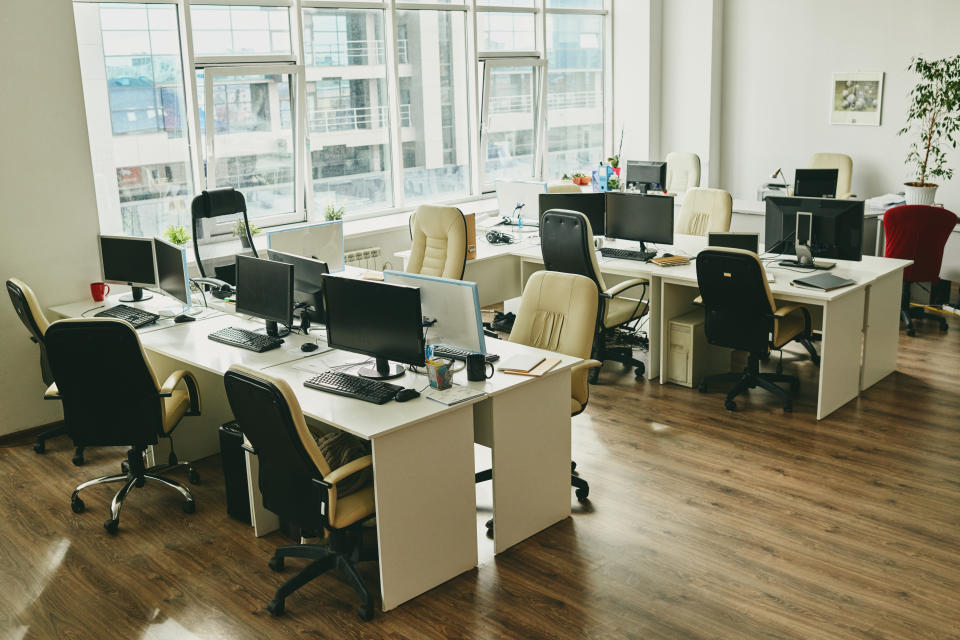Coronavirus: Empty office spaces could cost London businesses £13bn

Unused offices spaces after the coronavirus pandemic in the capital are set to cost London-based businesses £12.84bn ($17bn).
According to a new report by Space Three Two, over 70% of all office rent paid by businesses in London will be spent on empty desks.
The coronavirus pandemic has seen a drastic shift in the workplace, as government guidance and lockdowns rules meant that employees had to adapt and work from home.
The survey of London office workers shows that staff want to spend an average of 2.7 days back in the office once all COVID-19 restrictions have been lifted, providing they have the right work equipment and comfortable home office set-up.
Meanwhile, 1 in 10 workers (11%) said they didn’t want to go back to the office at all.
Prior to the pandemic, office workers spent an average of 4.2 days a week in the office.
The utilisation rate per office — the percentage of time that desks in any given office is in use —would drop from 44% pre-pandemic to 28% post-pandemic.
London offices are only using desks 28% of the time. This adds up to a 72% rate of wastage, the report shows.
READ MORE: London property prices expected to fall over next three months
The research suggests firms are releasing excess stock onto the sub-lease market in an attempt to protect themselves from the pending liability of office space, as pressure from the coronavirus crisis mounts.
As a result, London office sublease availability has jumped to a 15-year high
founder of Space Three Two, Jon Dweck, said: "Desk utilisation was already a major issue pre-Covid, with more than 50% of all desks empty at any given moment. Post-COVID, due to changing working practices and reduced workforces, we can expect 7/10 of all office desks to be empty at any given time.
“This is the tip of the iceberg. These figures paint a damning picture for London-based firms but we expect to see similar trends across the UK. The pandemic has caused a long-lasting seismic shift in people’s working habits.
“People want to spend less time commuting and more time at home, but unused office space is an expensive challenge for businesses. Office timeshare, or the ability to share office space with another firm of a similar size, is the future of workplaces.”
The total London commercial rental market is worth approximately £17.9bn, according to data from Costar.
A number of firms that have begun to reevaluate their working options since the coronavirus crisis forced nationwide and localised lockdowns and the government asking workers to avoid commuting if they can.
In October, accounting firm Deloitte announced it would close four UK offices and offer the 500 staff who work in their offices in Gatwick, Southampton, Liverpool and Nottingham work-from-home contracts.
Lloyds Banking Group (LLOY.L) also asked most of its 65,000 staff who are currently working from home due to COVID-19 to continue doing so until at least spring 2021.
Other big companies that have been considering moves to working from home, or downsizing office space include BP (BP). At the end of August, reports stated the oil giant would sell its headquarters.
Watch: Why job losses have risen despite the economy reopening

 Yahoo Finance
Yahoo Finance 